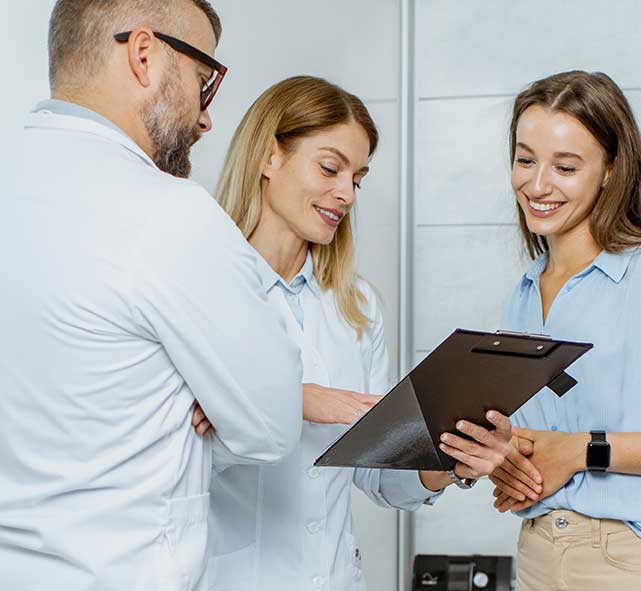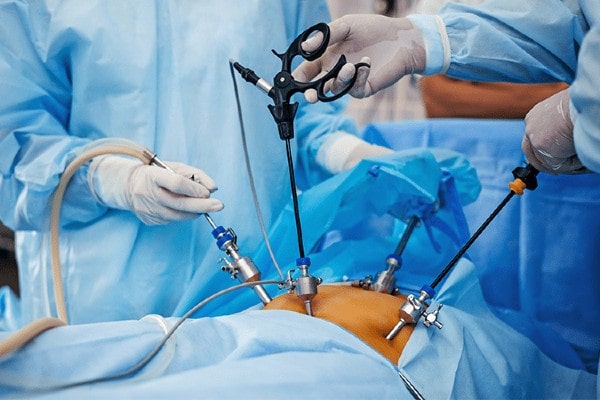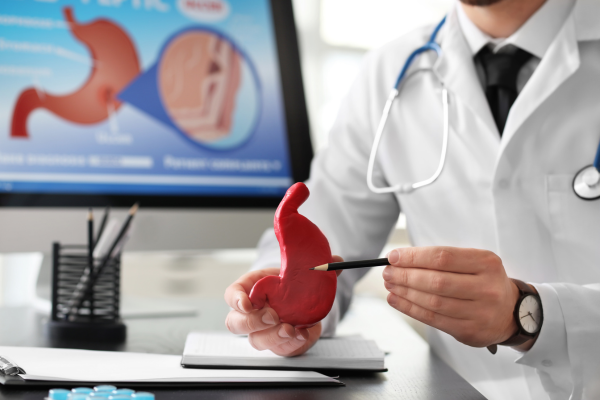Dr.Ankur Tiwari
Leading the Way in Laparoscopic Complex Advanced Gastrointestinal Surgeries
Specializing in minimally invasive Bariatric Surgery, laparoscopic surgery for GI, HPB, cancer, and care by a Gastroenterologist in Vadodara.

We Have 12+ years of experience

OPD Hours
Mon-Sat: 8:00 AM - 8:00 PM

Our Treatment
Gastroenterologist Dr Ankur Guides Care for a Healthier Tomorrow

Surgery for Liver Disorders
At Aadicura Superspeciality Hospital, Vadodara, under the expert care of…
Read More
Surgery for Chronic Pancreatitis
What is Chronic Pancreatitis? Chronic pancreatitis is a progressive inflammation…
Read More
Laparoscopic Gallbladder Surgery
What is Laparoscopic Gallbladder Surgery? Laparoscopic gallbladder surgery, also known…
Read More
Laparoscopic Colorectal Surgery
What is Laparoscopic Colorectal Surgery? Laparoscopic colorectal surgery is a…
Read More
Laparoscopic GI Cancer Surgery
What is Laparoscopic GI Cancer Surgery? Laparoscopic GI (Gastrointestinal) cancer…
Read More
Laparoscopic Pancreatic Surgery
What is Laparoscopic Pancreatic Surgery? Laparoscopic pancreatic surgery is a…
Read More
Laparoscopic Hernia Surgery
What is Laparoscopic Hernia Surgery? Laparoscopic hernia surgery is a…
Read More
Laparoscopic Weight Loss Surgery
Are you struggling to lose weight through diet and exercise…
Read More
Robotic GI Surgery
Experience the future of surgical care with robotic gastrointestinal (GI)…
Read More
About
Dr. Ankur Tiwari
Dr. Ankur is known as a trusted Gastroenterologist in Vadodara, offering advanced care in laparoscopic, minimally invasive, and robotic gastrointestinal surgeries. With more than 12 years of surgical experience and a Gold Medal in training, he handles complex GI cases, liver and pancreas procedures, colorectal diseases, and gastro-oncology with precision and confidence.
His professional journey includes extensive exposure at respected National and International institutes. He has trained at AIIMS New Delhi and completed specialized fellowship programs in advanced GI surgery, GI cancer management, and robotic surgical techniques at Kyungpook National University in Daegu, South Korea. His expertise spans multiple robotic platforms, enabling him to deliver safe and modern surgical solutions for patients with challenging gastrointestinal conditions.




Book With Us Now
Get an Appointment
Scheduling Made Simple. Reserve Your Spot Today!

Our Testimonials
Success Stories Written by Our Patients
EXCELLENTTrustindex verifies that the original source of the review is Google. Treatment of dr. Ankur tiwari sir is good and all staff is also goodPosted onTrustindex verifies that the original source of the review is Google. ખુબ જ સરસ..Posted onTrustindex verifies that the original source of the review is Google. It was a great experience being treated by Dr. Ankur. He explained every thing in great detail and took ample time to ensure that we understand the procedures completely. He was very humble in his approach as well. Thank you Dr. Ankur.Posted onTrustindex verifies that the original source of the review is Google. I had a wonderful experience with Dr. Ankur Tiwari and his team at Aadicura Hospital. From the moment we walked in, the staff was warm, welcoming, and extremely professional. Dr. Tiwari is not only highly knowledgeable but also very compassionate, taking the time to explain everything clearly and answer all our questions. The support staff was attentive, polite, and ensured that we were comfortable throughout the entire process. I truly appreciate the care and dedication shown by the entire team. Highly recommend Dr. Tiwari and Aadicura Hospital for anyone seeking quality medical care.Posted onTrustindex verifies that the original source of the review is Google. The doctor was knowledgeable and up-to-date on the latest treatments, and I felt confident in their recommendationsPosted onTrustindex verifies that the original source of the review is Google. I admitted in aadixura hospital for treatment of my bowel gangrene and operated laparotomy for that , my surgery done by Dr. Ankur sir , and it is very nice treatment by Dr. And all his team of hospital, now I fill very goodPosted onTrustindex verifies that the original source of the review is Google. I came to Dr. Ankur tiwari sir for appendix surgery at aadicur hospital on the reference of my friend Dr. Abhishek Sharma in which aadicur hospital work is very good and my surgery was done by Dr. Ankur tiwari sir and my surgery was done very well by Dr. Ankur tiwari sir so I am thankful to Dr. Ankur tiwari sir.Posted onTrustindex verifies that the original source of the review is Google. Great experience with Dr.ankur Tiwari ,very humble,knowledgeable and expert in gi surgery , explain very well about my problem,all staff are very cooperative and friendly thank you all highly appreciated and recommendPosted onTrustindex verifies that the original source of the review is Google. I admitted for my surgery of large gestric fundus varices under treatment of dr. Ankur sir , I found great treatment by doctor and their all team of hospital. Thank you very much for your cooperationPosted onTrustindex verifies that the original source of the review is Google. Hi mara mother ne hospital ma gallbladder stone with sevear infection na lidhe admit karya hata ane Ena lidhe emni critical condition thai gai hati because emne hypertension pan hatu ane Ena lidhe emni kidney ma pan problem Thai gayo hato ,have emne surgery pachi khub k saru che dr. Ankur sir khub j saras treatment kari ane mara mother ne biju jiwan apyu che , Tamaro khub khub abhar ane hospital staff no pan khub khub abhar 🙏🙏🙏
Dr. Ankur is a highly skilled Laparoscopic and Gastrointestinal (GI) Surgeon, recognized for his expertise in minimally invasive and robotic surgeries.
Quick Links
Our Treatment
Contact Info
- +91 86522 21588
- info@drankurgastro.com
- OPD No. 24, 1st Floor, Aadicura Superspeciality Hospital, Winward Business Park, Jetalpur Road, Vadodara 390020, Gujarat, India.



